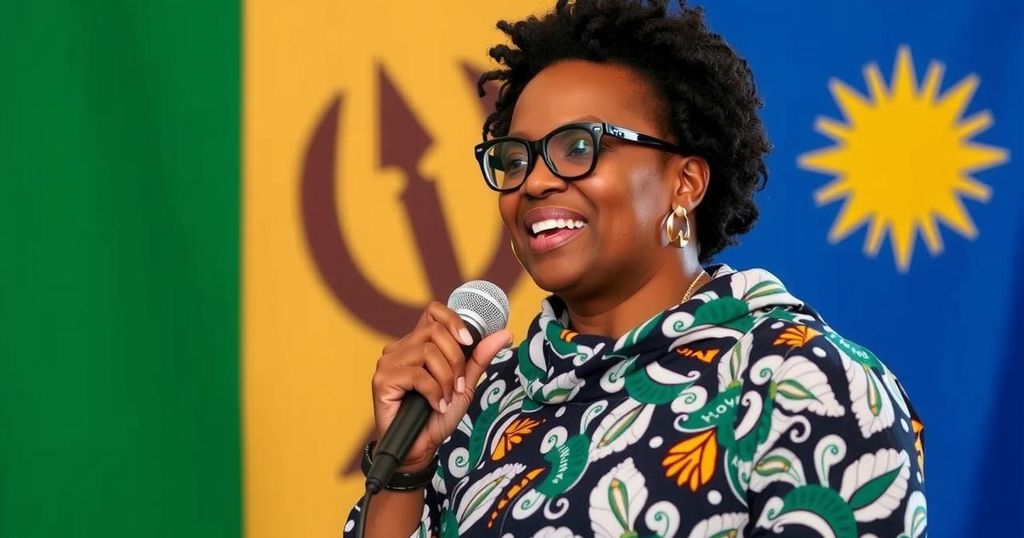Namibia Elects Its First Female President Amid Controversial Elections

Namibia has elected its first female president, Netumbo Nandi-Ndaitwah, who won 57% of the vote amid claims of electoral irregularities. The ruling Swapo party maintains power despite a decline in parliamentary support. Nandi-Ndaitwah promises stability while opposition parties plan to challenge the results.
Namibia has made history by electing its first female president, Netumbo Nandi-Ndaitwah, who secured 57% of the vote in a recent election that reinforces the ruling Swapo party’s 34-year dominance. Nandi-Ndaitwah, previously the vice-president and a long-time member of the independence movement, announced that “the Namibian nation has voted for peace and stability” after the results were confirmed. Despite technical issues and allegations of irregularities during the election, Nandi-Ndaitwah emerged victoriously, while opposition parties, including the newly formed IPC, plan to contest the election results in court.
Nandi-Ndaitwah’s ascent to the presidency follows the death of President Hage Geingob, who passed away in office. The election was fraught with complications, prompting an extension of voting that opposition groups deemed illegal, corroborating their claims of a flawed electoral process. In contrast, Nandi-Ndaitwah’s leadership and diplomatic reputation granted her a favorable position compared to other politically tainted figures within Swapo. Her election continues to demonstrate the strength of incumbent liberation movements in Namibia, particularly as other regions in southern Africa face political upheaval and declining support.
Notably, the Swapo party received only 53% of the parliamentary votes, a decrease from its previous standing of 65%. The result indicates a slight dip in party support, with opposition candidate Panduleni Itula realizing 25.5% of the votes and his IPC party capturing 20%. Nandi-Ndaitwah’s position as a steady, seasoned leader amidst internal party controversies positions her to influence Namibia positively while maintaining the Swapo party’s legacy of governance since independence from South Africa in 1990.
The election of Netumbo Nandi-Ndaitwah as Namibia’s first female president marks a significant milestone in the nation’s political landscape. Swapo has been the ruling party since Namibia gained independence from apartheid South Africa in 1990. Historically, incumbent liberation movements faced discontent from younger voters, as evidenced by recent political events in neighboring southern African countries. Significantly, governance challenges and allegations of electoral malpractice present a complex backdrop to Nandi-Ndaitwah’s presidency, presenting both opportunities and pressures. Her victory follows a trend of increased representation of women in leadership roles across Africa, despite the controversies surrounding the election process that underpins her presidency.
In summary, the election of Netumbo Nandi-Ndaitwah as Namibia’s first female president is a landmark event demonstrating the continuity of Swapo’s governance amid contested electoral circumstances. Nandi-Ndaitwah’s seasoned diplomatic background may provide stability and leadership, although the opposition’s challenge to the election results raises concerns about the integrity of the electoral process. With changing dynamics in southern Africa, her presidency represents both the potential for progress and the need for addressing political discontent among the electorate.
Original Source: www.theguardian.com








